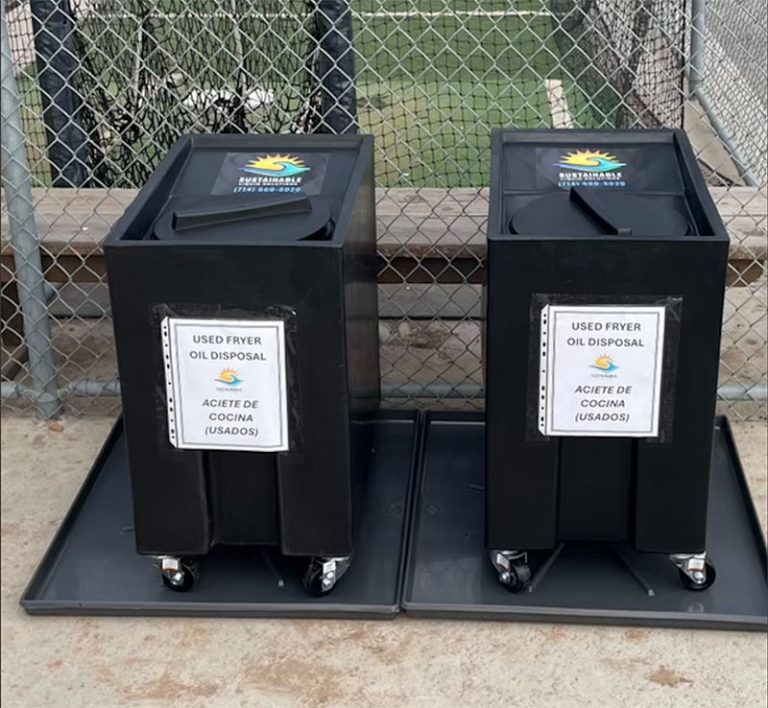Staying Compliant: A Restaurant Owner’s Guide to Used Cooking Oil Regulations
Understanding the Basics of Used Cooking Oil Regulations
Navigating used cooking oil regulations begins with understanding their purpose and scope. At their core, these rules are designed to prevent environmental harm caused by improper oil disposal. When cooking oil is mishandled—whether through leaks, spills, or illegal dumping—it can contaminate water supplies and harm local ecosystems. Regulatory bodies impose strict guidelines to ensure that businesses handle used oil responsibly.
For restaurant owners, the journey to compliance starts with proper oil storage. Regulations typically require used oil to be stored in sealed, leak-proof containers to prevent contamination and spills. Additionally, these containers must be kept in designated areas away from food preparation zones to maintain hygiene and safety standards. Beyond storage, the transportation and disposal of oil must be handled by certified vendors who adhere to both local and federal guidelines, ensuring that the oil is recycled or disposed of responsibly.
Understanding regional differences is also crucial, particularly for businesses operating across multiple locations. While some states demand meticulous record-keeping and documentation of recycling efforts, others have less stringent requirements. Staying informed about these variations helps ensure that your practices align with the expectations of each jurisdiction.
The Cost of Non-Compliance
Failing to adhere to used cooking oil regulations can have serious repercussions. The most immediate consequence is financial: fines for non-compliance can be steep, ranging from thousands of dollars to even temporary closure for severe violations. These penalties often result from issues like improper storage, leaks that contaminate the environment, or using uncertified vendors for disposal.
However, the financial risks are only part of the story. Non-compliance can tarnish your restaurant’s reputation, particularly in a market where consumers increasingly value sustainability. A single environmental violation can lead to negative press, lost customer trust, and damage to your brand image that may take years to repair.
Operational disruptions are another hidden cost of non-compliance. Inspections, investigations, and mandatory corrective measures can disrupt workflows and create additional stress for staff and management. In an industry where smooth operations are critical, these disruptions can have a cascading effect on your bottom line.
Building a Compliance Plan That Works
Creating a robust compliance plan begins with a thorough assessment of your current oil management practices. Start by identifying potential weaknesses in your storage, transportation, and documentation processes. For instance, are your storage containers up to code? Are you working with a certified recycling vendor? Are you maintaining accurate records of your oil recycling efforts?
Partnering with a certified vendor is one of the most effective ways to ensure compliance. These professionals handle the transportation and recycling of used oil, providing services like scheduled pickups and detailed compliance reports. Their expertise reduces your risk of accidental violations and simplifies the entire process, from storage to disposal.
Staff training is another critical element of a successful compliance plan. Employees should understand the importance of proper oil handling and be familiar with the steps required to meet regulatory standards. Clear written protocols and regular training sessions ensure consistency and accountability throughout your team.
Additionally, maintaining thorough documentation is essential for passing inspections. Records should include details of oil volumes recycled, vendor certifications, and scheduled pickups. These documents not only demonstrate compliance but also streamline audits, saving time and reducing stress for your team.
Turning Compliance into a Competitive Advantage
While compliance is often viewed as a necessary burden, it can also be a powerful differentiator for your business. Adhering to regulations showcases your commitment to sustainability and community responsibility, values that resonate deeply with today’s consumers. By actively promoting your compliance efforts, you can build trust and loyalty among eco-conscious customers.
Highlighting your partnership with certified vendors and sharing your recycling statistics on your website, social media, or menu adds transparency to your brand. Customers appreciate businesses that align with their values, and showcasing your dedication to proper oil management positions your restaurant as a leader in environmental responsibility.
Beyond reputation, compliance also offers financial incentives. Many recycling companies provide rebates for high-quality, uncontaminated oil. By keeping your oil clean and adhering to best practices, you can turn compliance into a revenue stream, offsetting costs and improving your bottom line.
A Sustainable Future Through Compliance
Mastering used cooking oil regulations is more than just ticking boxes—it’s about protecting the environment, building a responsible brand, and unlocking new opportunities for growth. By investing in proper storage, partnering with certified vendors, and training your staff, you can simplify compliance and position your restaurant as a sustainability leader.
In a competitive market, staying ahead of regulations isn’t just smart—it’s essential. Longview Environmental encourages you to see compliance not as a challenge but as a pathway to a stronger, greener, and more trusted business.








